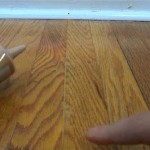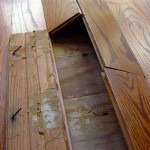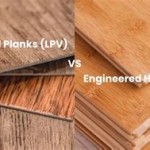Cost of Installing Wood Floors
Installing wood floors can dramatically enhance the beauty and value of your home, but it's essential to understand the cost implications before embarking on this project. The total cost of installing wood floors varies depending on several factors, including the type of wood, the size of the area to be covered, and the complexity of the installation. In this article, we will delve into the cost considerations and provide an approximate range of expenses you can anticipate.
Type of Wood: The type of wood you choose has a significant impact on the cost of your wood flooring. Hardwood species, such as oak, maple, and mahogany, are generally more expensive than softwood species, such as pine and fir. Exotic wood species, such as Brazilian cherry and teak, command even higher prices due to their rarity and durability.
Size of the Area: The square footage of the area to be covered directly affects the cost of installation. Larger areas require more materials and labor, leading to higher expenses. Additionally, rooms with irregular shapes or multiple angles may incur additional costs due to the increased complexity of the installation.
Installation Method: Wood floors can be installed using various methods, each with its own cost implications. Nail-down installation, where wood planks are nailed directly to the subfloor, is typically the least expensive option. Glue-down installation, where planks are adhered to the subfloor using adhesive, is more durable but also more costly. Floating installation, where planks are connected to each other but not to the subfloor, offers ease of installation but may not be as durable as other methods.
Labor Costs: The labor costs associated with wood floor installation can vary depending on the complexity of the project, the skill level of the installer, and the prevailing labor rates in your area. Installing wood floors requires specialized knowledge and expertise, so it's essential to hire a qualified flooring contractor to ensure a professional and durable installation.
Additional Costs: In addition to the materials and labor costs, there may be additional expenses to consider, such as:
- Removal of existing flooring: If you have existing flooring that needs to be removed, this will add to the overall cost.
- Subfloor preparation: The subfloor may need to be leveled, repaired, or replaced to ensure a stable base for the wood flooring.
- Moldings and trim: Moldings and trim are necessary to finish the edges of the wood flooring and add a polished look, which can add to the cost.
- Flooring accessories: Additional accessories, such as underlayment, moisture barriers, and cleaning supplies, may also contribute to the overall cost.
Approximate Cost Range: The cost of installing wood floors can vary significantly depending on the factors discussed above. As a general estimate, you can expect to pay between $5 and $15 per square foot, including materials and labor. However, it's important to note that this is just an approximation, and the actual cost may differ based on your specific project requirements.
To obtain a precise estimate for your wood flooring installation, it's highly recommended to consult with a reputable flooring contractor or visit local flooring showrooms. They can assess your space, discuss your preferences, and provide a detailed breakdown of the costs involved, ensuring that you make an informed decision that aligns with your budget.

Hardwood Flooring Installation Costs 2024

Hardwood Floor Installation Cost 2024 Per Sq Ft Urban Customs Az

Hardwood Flooring Installation Cost

How Much Does Wooden Floor Installation Cost In 2024 Mybuilder

How Much Does It Cost To Install S Hardwood Floors

How Much Does Wooden Flooring Cost In 2024 Checkatrade

How Much Does Hardwood Flooring Cost 2024 Guide

The Cost Of Installing Hardwood Floors A Guide For Homeowners Architects Diary

Cost To Remove Hardwood Floors Mk Remodeling

Cost To Install Hardwood Flooring Floor Fixr







